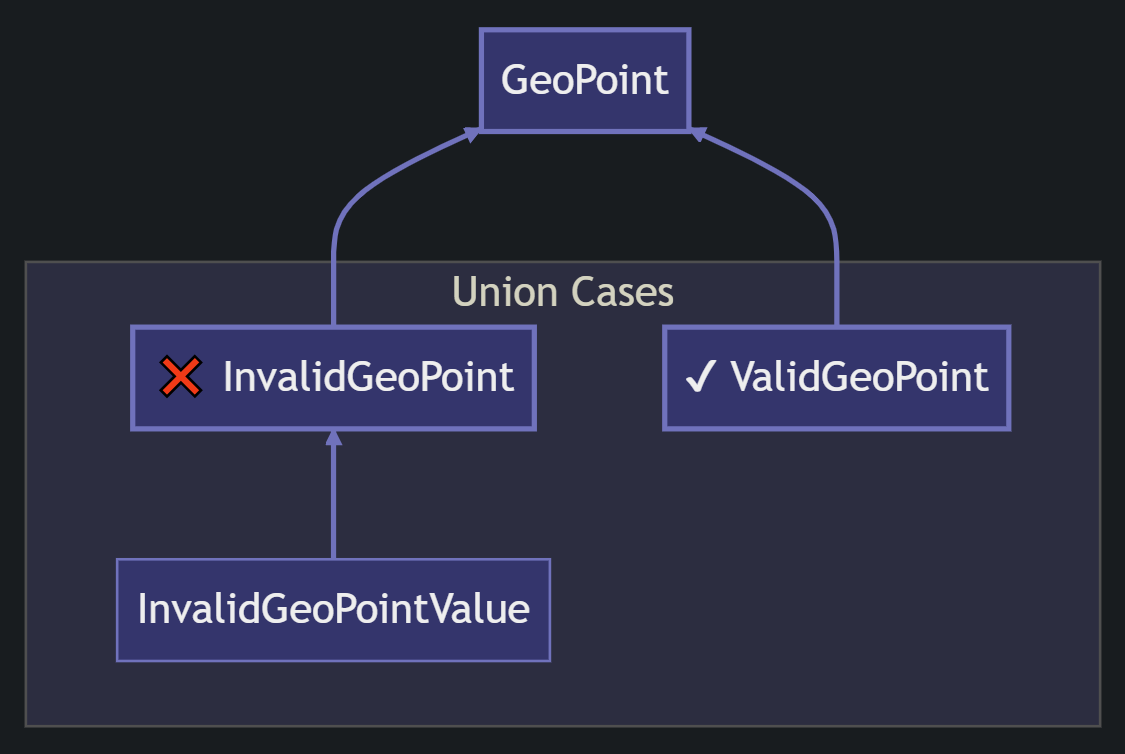Creating a ValueObject
Steps to create a ValueObject
/// SingleValueObject
class Age extends SingleValueObject<InvalidAge, ValidAge> with _$Age {}
/// MultiValueObject
class GeoPoint extends MultiValueObject<InvalidGeoPoint, ValidGeoPoint>
with _$GeoPoint {}/// SingleValueObject
//...
factory Age(int value) //...
/// MultiValueObject
//...
factory GeoPoint({
required int latitude,
required int longitude,
}) //...Default validationSteps names
Step
Default name
Example
Complete Example
